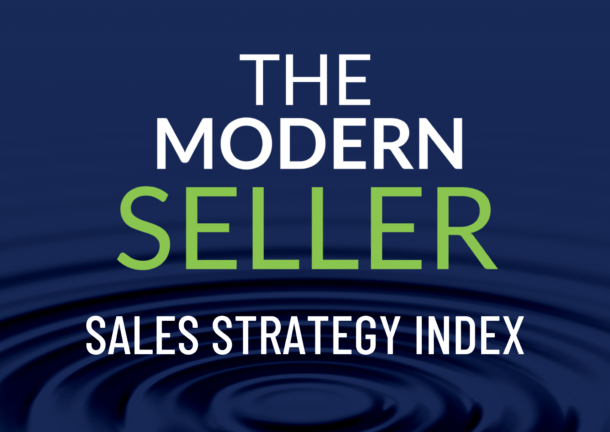Executive Presence Helps Sales Leaders Build Trust and Credibility
Got gravitas?
There’s a popular saying about executive presence. It’s hard to describe, “but you know it when you see it.” There’s also a widely held belief that you either innately possesses executive presence… or not.
Yes, many people seem to exhibit executive presence in spades. I’ve also known many who have worked to cultivate it and grown into leadership roles.
At the same time, it’s important to understand that executive presence isn’t just for someone aspiring to become a sales leader or executive. And it isn’t about performance, extreme extroversion, being center stage, or perfection.
Sylvia Ann Hewlett, economist and the CEO of Hewlett Consulting Partners, is a leading expert and author on this topic. She describes executive presence as “the elegant packaging that attracts impressed attention, allowing your skills, accumulated knowledge, depth of experience, and raw talent to stand out and draw others to you.”
Hewlett argues that those who lack executive presence will not progress in their careers, despite having the necessary experience and qualifications. She refers to executive presence the “missing link between merit and success.”
Certainly, executive presence makes a difference. According to a recent study by the Center for Talent Innovation, executive presence accounts for 26% of what it takes to advance within an organization. (Source: Training Industry)
Let’s consider what sales leaders and modern sellers can do to cultivate executive presence within themselves… and drive more sales.
Four Elements of Executive Presence + Strategies to Implement Them
If executive presence is a set of attributes and skills one can build to make an impact in any aspect of personal and professional life, what are these mysterious attributes?
The four elements that comprise your executive presence are acumen, communication, vitality, and impact. This combination signals to prospects and clients that you –and your business or firm– are the right, trusted advisor for them.
While it might not be a stated factor in a prospect’s decision-making process, executive presence is worth your focus. It’s an indicator that you are the best choice. In fact, I believe it’s one of the top challenges facing sellers and sales leaders today.
In the section below, I will review each of the four attributes of executive presence, and the strategies you can use to develop them.
1. Acumen
Acumen is your insights and knowledge, and what you do to leverage them. This includes knowledge of your business and your client’s business. Acumen makes you a peer in the eyes of your decision makers. Acumen encompasses:
- Career and personal experiences
- Solid decisions, good judgment
- Agility
- Ideation and insights
- Composure in demanding situations
- Expertise and continual learning
- Strategic speed
Some acumen strategies for sellers:
- Balance broad knowledge with deep knowledge in a niche or discipline
- Track trends to foster ideas
- Build your skill base in go-to-market, revenue generating, or financial disciplines
- Reframe failure
2. Communication
When you communicate with executive presence, you share your messages in a way that is compelling, substantive, approachable– across a variety of media. Communication encompasses:
- Verbal and non-verbal cues
- Formal/informal presentation skills
- How you articulate yourself
- Speaking “off the cuff”
- Reading the communication cues of others and flexing your style
- Delivery and substance of your messages
- Approachability
Communication strategy for sellers:
- Take an improvisation class
- Up-level your digital presence
- Volunteer for speaking engagements at industry events
- Submit guest writing for respected publications and blogs
- Be a podcast guest for popular podcasts in your industry or target industries.
3. Vitality
Vitality is the right level of energy brought to the situation.
This includes:
- The energy level you bring to a situation, conversation, or event
- Your presence when you enter a physical or virtual room
- Outward appearance such as your dress, posture, and voice
- Conveys the message that you are ready to serve this client
Vitality strategies for sellers:
- Know what energizes you and create routines around that. Ideas include fitness, nutrition, hobbies – away from work
- Live and work in clean spaces that create positive energy
- Have awareness of your posture, body language, energy levels
- Be mindful of how you “show up” both in person and virtually
4. Impact
Impact is the direct results you create for your company, your clients, and your communities. Your impact will encompass:
- Your results, created directly
- Social capital and value of your networks
- Results created through your leadership, in collaboration with others
- Your effect and reach, such as the influence you have on leaders, peers, clients, and the community
Impact strategies for sellers include:
- Be a connector– someone who connects others to people, resources, ideas
- Seek board service opportunities
- Take advantage of high-profile committee opportunities in your professional associations
- Seek out a sponsor or mentor
- Stay current with your organization’s key priorities and initiatives
We each ultimately own our executive presence — it’s how we choose to show up in the world each day. By developing the skills of presence in addition to our already innate attributes, we can make the greatest personal and professional impact.
Emotional Intelligence: A Key to Executive Presence for Sales Leaders
Emotional intelligence and executive presence are closely intertwined. Sales leaders and sales professionals who possess both emotional intelligence and executive presence are better equipped to inspire confidence and achieve your goals.
In addition, emotional intelligence allows you to understand and connect with your team, clients, and prospects on a deeper level.
-
Self Awareness
One key aspect of emotional intelligence is self-awareness, which involves the ability to recognize and understand your emotions, strengths, and weaknesses. Sales leaders who possess self-awareness can better manage their emotions, avoid impulsive decisions, and communicate more effectively with your team members.
-
Empathy
Empathy is one of the most important skills in any sales leader’s or seller’s toolbox. It involves the ability to understand and relate to the emotions of others. When you possess empathy, you can build stronger relationships with clients, as you can understand their needs and feelings on a deeper level. Empathy also helps you build trust with team members, which can improve morale and overall team performance.
-
Focus and Discipline
Our brains can only truly focus on one thing at a time to do a task well. This is even more critical when the task involves creative thinking or problem solving (rather than a rote task) for things like sales proposals and RFP responses or researching a new vertical. Sales professionals can develop the skill of selecting what they want to focus on and tune out the rest for a set amount of time. They do their best work and create better results.
With time and practice, you can develop a greater sense of emotional intelligence, which can help you navigate relationships and achieve success not only in sales, but in your personal life, as well!
Does Your Sales Team Need to Improve Their Executive Presence?
Amy Franko is the leader in sales training and sales leadership coaching. Contact us to learn how she can coach your team to improve their executive presence and a create a stronger sense of emotional intelligence… both of which will lead to greater sales success.



 Our Strategic Selling signature sales training program is now available online. This online sales learning program is ideal for professional services and B2B sales. Get started with 2 free lessons.
Our Strategic Selling signature sales training program is now available online. This online sales learning program is ideal for professional services and B2B sales. Get started with 2 free lessons.